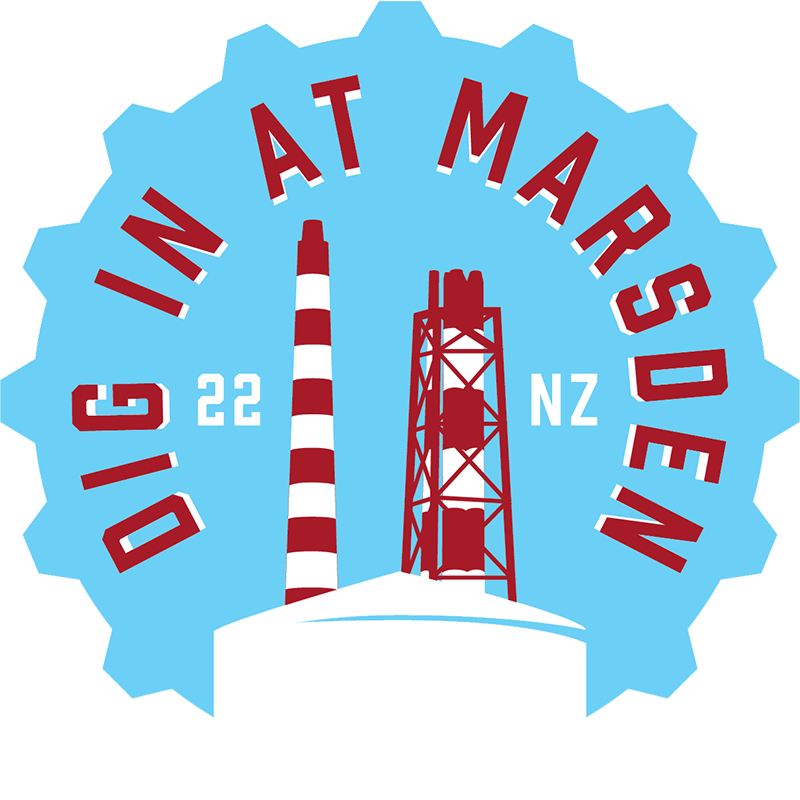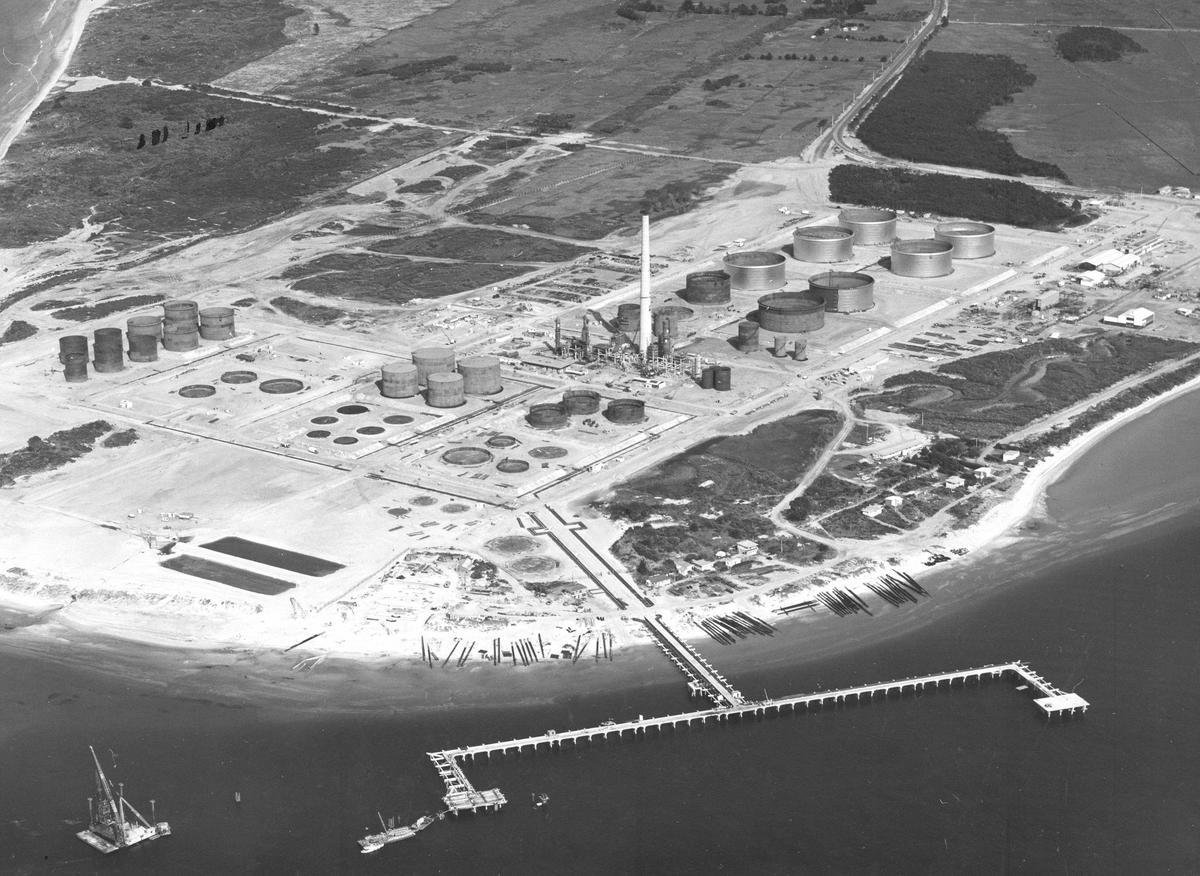
REFINERY HISTORY
1960s
beginnings
The Marsden Point Oil Refinery was constructed in 1962 and paid for by our people. It was officially opened on the 30th of May 1964.
In 1973 under Norman Kirk, the government approved a NZ$160 million expansion of the refinery; later that year, the first global oil shock sparked by the Yom Kippur War raised crude oil prices from US$3 to around US$20 a barrel - fortunately, NZ citizens retained reasonable security of supply.
A second global oil shock in 1979, this time due to the Iranian revolution, greatly increased the price of oil again. This became a catalyst for further expansion of the refinery, under Robert Muldoon’s Think Big energy projects.
1961: Marsden Point prior to construction
1963: Construction site
1980s
Expansion & disperSion
By 1981, the expansion began, and the government approved 170 kilometres of pipeline to Wiri in South Auckland.
A workforce of 5,000 worked on the expansion, and it was expected to cost us $1.55 billion. Due to strikes and government negligence, the project was completed in 1986, two years behind schedule and at a final cost of $1.84 billion.
Following the election of the Roger Douglas-driven Labour Government in 1984, the Petroleum Sector Reform Act was introduced. This Act deregulated the petroleum industry, with 1,500 workers expected to lose their jobs. The Refinery assets we paid for were transferred by the Government to the New Zealand Refining Company Limited, a consortium of the five major petrol retailers. BP, Mobil and Z Energy are currently the major shareholders. The Government borrowed $80 million and gave it to the New Zealand Refining Company to enable it to adapt to the new environment. By 2003, the refinery produced 70% of New Zealand’s petrol and 90% of its diesel.
November, 1982, Marsden Point, Northland
2020
The Internal Sabotage of the oil refinery
Instead of assessing the risk to the people of this country and employing a more responsible approach, the shareholders, board of executives, and management have taken on a strategy of sabotaging the refinery's capabilities.
Reports from operators inside the refinery claim that our roads have been insufficiently maintained because the refinery closed down bitumen production 18 months ago! This was done during the best time to fix the roads and has left us reliant on importing low-quality bitumen that is three times the price!
The operators also state that CO2 collection has halted; this will add to the cost of food as the captured CO2 is used in food preservation and the carbonation of beverages. Watch out for the announcement of a price freeze!
The oil refining capabilities of Marsden Point have, for the most part, contributed to a diverse range of products that sustain our Nation. It is in the top quarter of refineries worldwide for its efficiency, quality of products, and environmental consideration.
The refinery has also been profitable; the COVID-19 response had a small effect on its profits. However, almost all the operators claim that poor management and the seemingly purposeful advancement of incompetence into the management’s ranks have contributed far more to its capitulation.
Operators also claim that some of the refined fuel coming in from overseas is of such low quality that it requires extra refining from our refinery. This may pose a risk to our vehicles; what effect will the quality of the imported fuel have on our vehicles? And why are we paying three times as much for poorer quality bitumen?
Our Natural Gas Infrastructure (NGI) creates condensate, which is a light crude than can be refined into fuel. If our refinery was improved, we could refine light crude and residue into diesel, naphtha, and kerosene in an emergency.
OUR FUTURE
Reclaiming ownership
The above is a historical story of how a Corporate State can be used by large Corporations to take from the public over time.
You, your parents and grandparents paid to construct this oil refinery so that it may guard us all against the inflationary effects of geopolitical turmoil. With geopolitical turmoil erupting in the Ukraine, and China threatening the same onto Taiwan; we the people, cannot afford to rely solely on refined fuel from abroad.
Let’s decide our future. Read about our mission.






